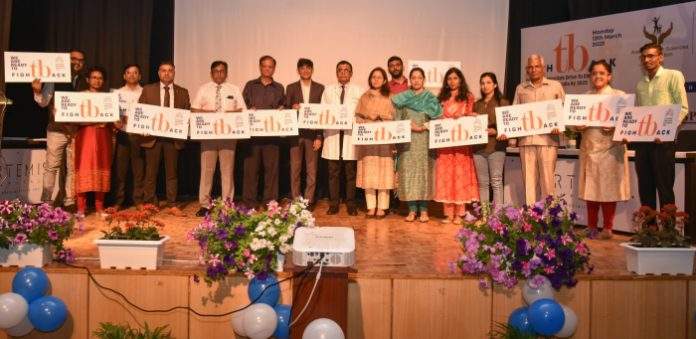
Ahead of World TB Day, the 600-bed Artemis Hospital launched an awareness campaign about lung health and TB among urban slum dwellers in Gurugram. The initiative will run for six months and cover thousands of slum residents and migrants in the district.
As part of the campaign, Artemis Hospital, in association with an NGO, will conduct a door-to-door health education program to make people aware of the importance of preventing tobacco usage, adopting healthy lifestyle practices for improving lung health, the causes and symptoms of TB, and preventive measures. World TB Day is observed on 24 March every year.
Various tools will be used, including posters and flyers, street plays, community meetings, WhatsApp messages, quiz programs for children and young adults, and women’s self-help groups.
Free TB screening camps will be organized for slum residents. They will be encouraged to get screened for TB. A referral system will be established to connect people found TB-positive with the local NTEP or Public health centers for the necessary treatment and follow-up. The hospital will provide personal counseling of TB patients by trained personnel. A support group will be formed with TB patients, TB champions (those willing to quit tobacco usage), and local influencers and healthcare workers in the community to ensure the completion of treatment.
“As the TB officer for Haryana, I am pleased to extend my full support to Artemis Hospital and its efforts in combating TB. Let us work together to make this a model for the world and showcase it to the state government and central TB division,” said Dr Rajesh Raju, TB Officer, Haryana.
Keshav, district TB Officer of Gurugram, said they have made significant progress in the fight against TB, with over 2,223 designated microscopy centers where they can directly diagnose TB patients, especially those who have been coughing for more than two weeks. “We process around 50 samples daily using molecular machines and obtain all the results directly. Within two to three hours, we can determine whether a patient has tuberculosis and whether he or she is sensitive or resistant to rifampicin. However, we still have a long way to go in achieving our goal of treating all TB patients. I urge all doctors and government hospitals to support us in this endeavor so that we can identify and treat as many patients as possible to control TB.”
Dr Devlina Chakravarty, MD & CEO, of Artemis Hospital, Gurugram, said, “We are fully committed to the Government’s mission of making India TB-free by 2025, five years ahead of the UN SDG of 2030. Slums are breeding grounds of infectious diseases, including TB, due to overcrowding and poor living conditions. About 10.2% of the total slum population of Haryana now lives in Gurugram, according to the 2011 Census. Many of them do not have access to national health programs. The war on TB clearly cannot be won without targeting urban slums. The various interventions planned as part of this initiative will lead to improved lung health and reduced TB rates among slum residents of the district, as well as increased awareness and understanding of the disease and best practices.”
Dr Bhavin Vadera, USAID India, addressed the event by mentioning the need for corporate and multisectoral engagement for the nation’s mission against tuberculosis.
Most of the efforts of Artemis Hospital for the TB campaign will be focused around the two public health centers at Kasan and Bhangrola where most of Gurugram’s slum population resides. The hospital has already been providing nutrition support to over 20 TB patients for the last many months.
India has the world’s highest TB burden, with about 26 lakh people contracting the disease and around 4 lakh dying every year. The economic burden of TB in terms of loss of lives, income, and workdays is also substantial. TB usually affects the most economically productive age group of society, resulting in a significant loss of working days and pushing TB patients further into the vortex of poverty.







